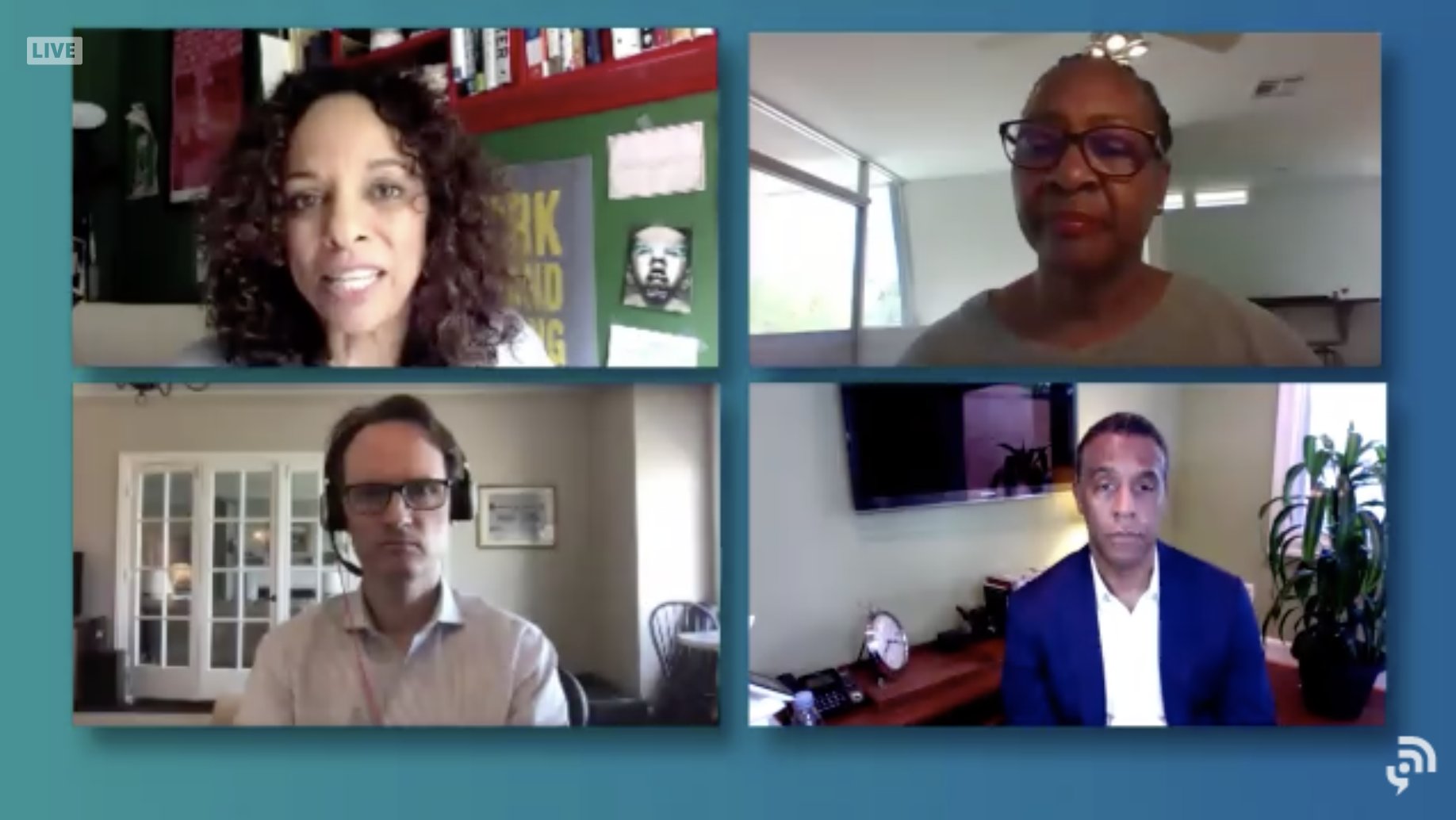ImpactAlpha, May 12 – Decades of experience battling racial and economic disparities must be brought to bear on the COVID crisis, said presidents of major private foundations at this week’s Mission Investors Exchange online conference.
“We do have a lot of lessons on what needs to happen in this moment,” said Kellogg Foundation’s La June Montgomery Tabron. Communities of color must participate in the recovery and reimagining of what the economy can be, she said. “As this work expands, we can be a part of that expansion.”
- Inclusive recovery. Kellogg will look to its mission investments in fund managers like Kesha Cash of Impact America Fund, which backs entrepreneurs of color, and companies like Revolution Foods, which is delivering food to students who are no longer getting lunch at school, to help drive an inclusive recovery (see, “How Kellogg Foundation is interrupting racial bias in capital markets”).
- Catalytic capital. MacArthur Foundation is helping set up city-focused COVID response funds, drawing on lessons from its $625 million in catalytic loans, equity investments and guarantees. MacArthur’s John Palfrey said the foundation is deferring or forgiving as much as $25 million in loans from its program-related investment portfolio, following the foundation’s practice in the wake of the Gulf Coast hurricanes and the subprime foreclosure crisis (see, “Investors that demonstrate flexibility and patience prove catalytic in COVID crisis”).
- Systemic approach. “We need a forklift, cranes and other stuff,” to break through systemic problems in health, education and inequality, said Rey Ramsey of The Nathan Cummings Foundation. “It takes this all-of-the-above approach.” Cummings has made $180 million in new impact investments since it announced that it would mission-align its full $450 million portfolio (see, “Stretch goal for foundations: Shift power, as well as assets, for the post-COVID economy”).











